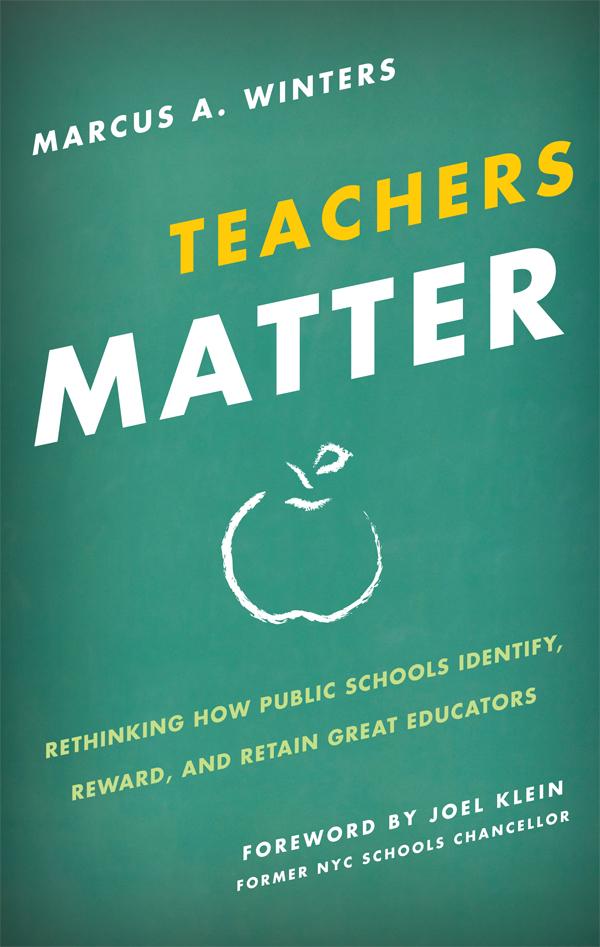Research has shown that teacher effectiveness boosts student achievement without regard to race, ethnicity, or socioeconomics. Yet the nation's public-school systems treat all teachers the same, ignoring vast differences in skills and effectiveness, relying exclusively on seniority to make decisions about retention. One reason has been the difficulty of measuring teacher effectiveness. Education scholar Winters maintains that by using the much-maligned standardized test scores and observing teachers more frequently, schools can identify teachers who are helping students to advance. Winters' arguments for school reform are based on the principles that the highest purpose of public schools is to educate students, that they are not profit-making firms, and that research can help in crafting education policy. In fact, he relies on research data to quantify the problem and make the case for reform, exploring the particular promise and limitation of standardized tests for measuring student achievement. He concludes with recommendations for reform, including merit pay for effective teachers. This is a thoughtful look at the need for school reform that is sure to provoke controversy. Booklist Winters explains the faults found in the current system and compares them to other fields that have already moved from objective observation to quantitative analysis and shows examples of how a new system would work to make sure that our children's teachers would be the best they could be and give our children the basis they need to succeed in an ever changing world. His revolutionary ideas on teacher retention and training should become the basis of our school systems, in order to help the United states boast the best schools systems in the world. Education Views Winters (senior fellow, Manhattan Inst.) has written extensively on the effects on student achievement of educational policy issues such as test-based versus social promotion, reducing school district size, charter school funding, and school voucher programs. He has made ample use of empirical data on test scores and teacher and student demographics and has stressed the importance of utilizing these types of data to improve the public education system. Here, Winters argues that public schools should evaluate their teachers with a value-added analysis of test scores (are the teacher's students improving as they should be, according to their demographics?) in tandem with frequently obtained observational data rather than the rubber stamp "satisfactory" rating given by many administrators hoping to avoid union grievances. Once established, he suggests, the results of these evaluations should be used to determine salary increases, grant tenure, and, if necessary, choose the order in which teachers are laid off. He also advocates for reform in teacher education and alternate certification models. VERDICT Sure to spark discussion and debate, this book will be of interest to anyone concerned with public education in the United States. Library Journal Marcus Winters's proposal to revise how teachers are hired, rewarded, and retained will infuse the debate about educational reform with energy, if not consensus, making his book worth reading for those who care about America's public schools. ForeWord Reviews Marcus Winters makes a clear and compelling case that teachers are the most important aspect of schools, which ought to persuade those opposed to rewarding effective teachers financially and identifying the ineffective ones that they are jeopardizing student performance. -- Eric A. Hanushek, Stanford University In this remarkably accessible volume, Marcus Winters deftly summarizes the latest research on how to best select, motivate, and retain effective teachers to improve our nation's schools. It won't be easy, but this is an invaluable guide for what needs to be done. -- Jay P. Greene, Ph.D., endowed chair and head of the Department of Education Reform, University of Arkansas Marcus Winters offers an analysis of American education's most vexing challenge that is clear, beautifully written, and utterly persuasive...He is a master at taking complicated issues and explaining them in simple, easily understood terms. This is a book that everyone interested in improving the public schools needs to read. -- Terry M. Moe, Stanford University










